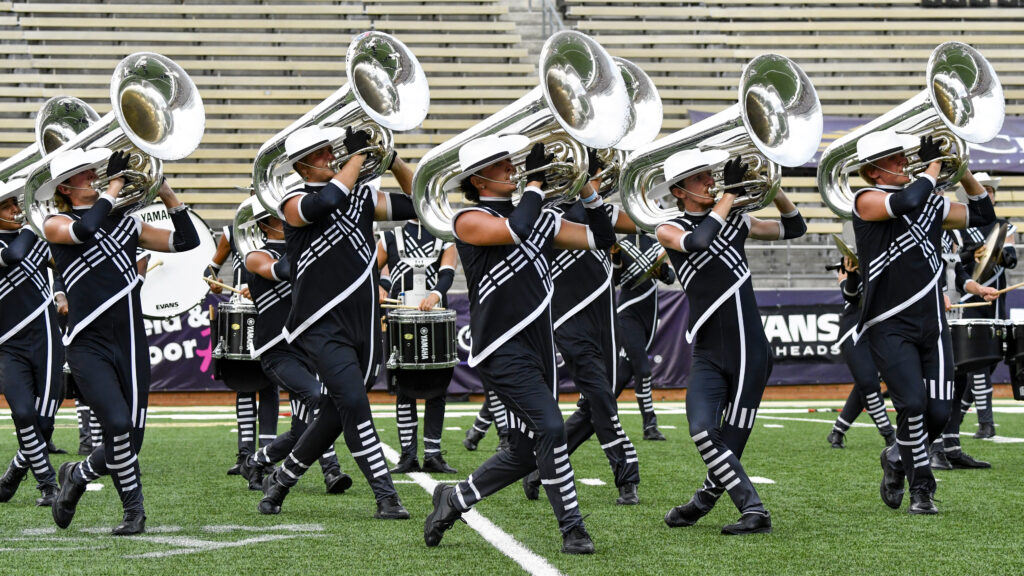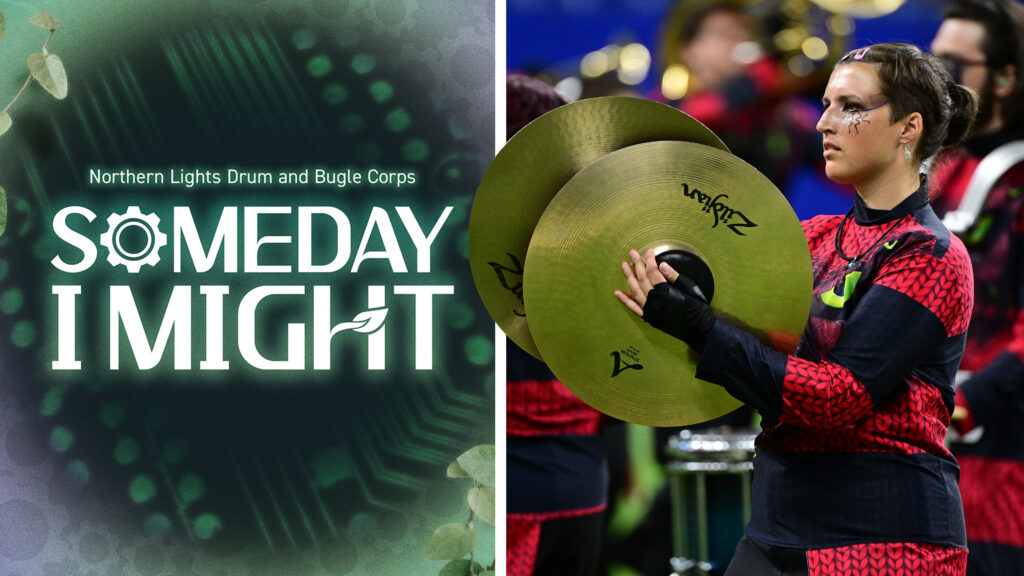In 2009, World Championship events for Open Class corps took place in three installments. Ames Field in Michigan City, Indiana, hosted the Quarterfinals competition, with corps moving on to perform in the Open Class Semifinals (top 17) and Finals (top 12) at Lucas Oil Stadium in Indianapolis.
Blue Devils B won all three events, joining the World Class Blue Devils in going undefeated for the season.
That accomplishment avenged the losses both corps experienced in 2008, when each corps finished second in their respective Finals competition with a combined shortfall of just 0.075, less than a single tenth.

Burlington, Massachusetts Open Class corps Citations, after placing in Finals for the first time the previous season, finished third in 2009. This was largely due to winning the color guard caption by an impressive 1.80 points over the next highest-scoring corps.
Just out of the top-three was Florida’s Teal Sound. Legends and 7th Regiment both made the Open Class Finals for the first time, and Velvet Knights and Capital Regiment returned to the top 12 after previously falling out, meaning one-third of the Open Class finalists were not in Finals the previous year.
Citations’ “Portraits of Desire” show relied heavily on the success of the color guard to pull the corps up from an eighth-place finish in brass and an 11th-place finish in percussion. The guard performers were expressive, tender, and demure when needed, then suddenly brash and engaging as the music called for it.
Half of the show was inspired by the colorful heritage of Spanish music, expressing the wants of desire and the needs of obsession.
The first two musical portraits were by tango master Astor Piazolla, starting with his “Michelangelo 70” from the 1986 album, “Tango: Zero Hour,” recorded by Piazzola and his New Tango Quartet. The show started with a restrained trumpet melody, slowly building up steam until segueing into the next piece.
The composer’s “Libertango” came from the 1974 album of the same name, the title blending the Spanish words for “liberty” and the ballroom dance of strong rhythm and dramatic pauses that originated in the composer’s home country of Argentina. The title further symbolized Piazzola’s newfound liberty from the restrictions of classical tango and his evolution to the style referred to as “Tango Nuevo,” which was much more flexible in accommodating new ideas.

A single color guard member was dressed in red, while the rest of the guard was attired in tan and off white. She danced a tango with a male member of the guard, fulfilling the original intent of the dance.
The corps’ next piece was “Vincent (Starry, Starry Night)” by Don McLean, the 1971 song written the same year as his insanely popular number one hit, “American Pie.” The song was a tribute to artist Vincent Van Gogh’s famed 1889 painting, “The Starry Night.”
Playing off the painting theme, a trio of baritone horns performed through openings of picture frames. Flags in the background contained a mostly-blue-screen snippet of Van Gogh’s masterpiece.
Next, Chick Corea’s “Day Danse” came off his “My Spanish Heart” album of 1976, which emphasized the seductive dances of Spain. This selection originally featured a string quartet, along with Corea’s intensely contrapuntal piano and a rhythmic accompaniment of hand clapping.
During this section, the corps’ flags turned fiery red, orange, and yellow to echo the blazing vivaciousness of the music.
As its closer, Citations called upon the unrequited love portrayed in Greek tenor Mario Frangoulis’ operatic treatment of “Nights in White Satin,” from the singers’ “Sometimes I Dream” album of 2002. The corps utilized the piece to end the show with two lovers finding each other and embracing during the final notes, which would be the last image we would have of the corps in its final season on the field before disbanding.

Michael Boo was a member of the Cavaliers from 1975-1977. He has written about the drum corps activity for more than 35 years and serves as a staff writer for various Drum Corps International projects. Boo has written for numerous other publications and has published an honors-winning book on the history of figure skating. As an accomplished composer, Boo holds a bachelor's degree in music education and a master's degree in music theory and composition. He resides in Chesterton, Indiana.





